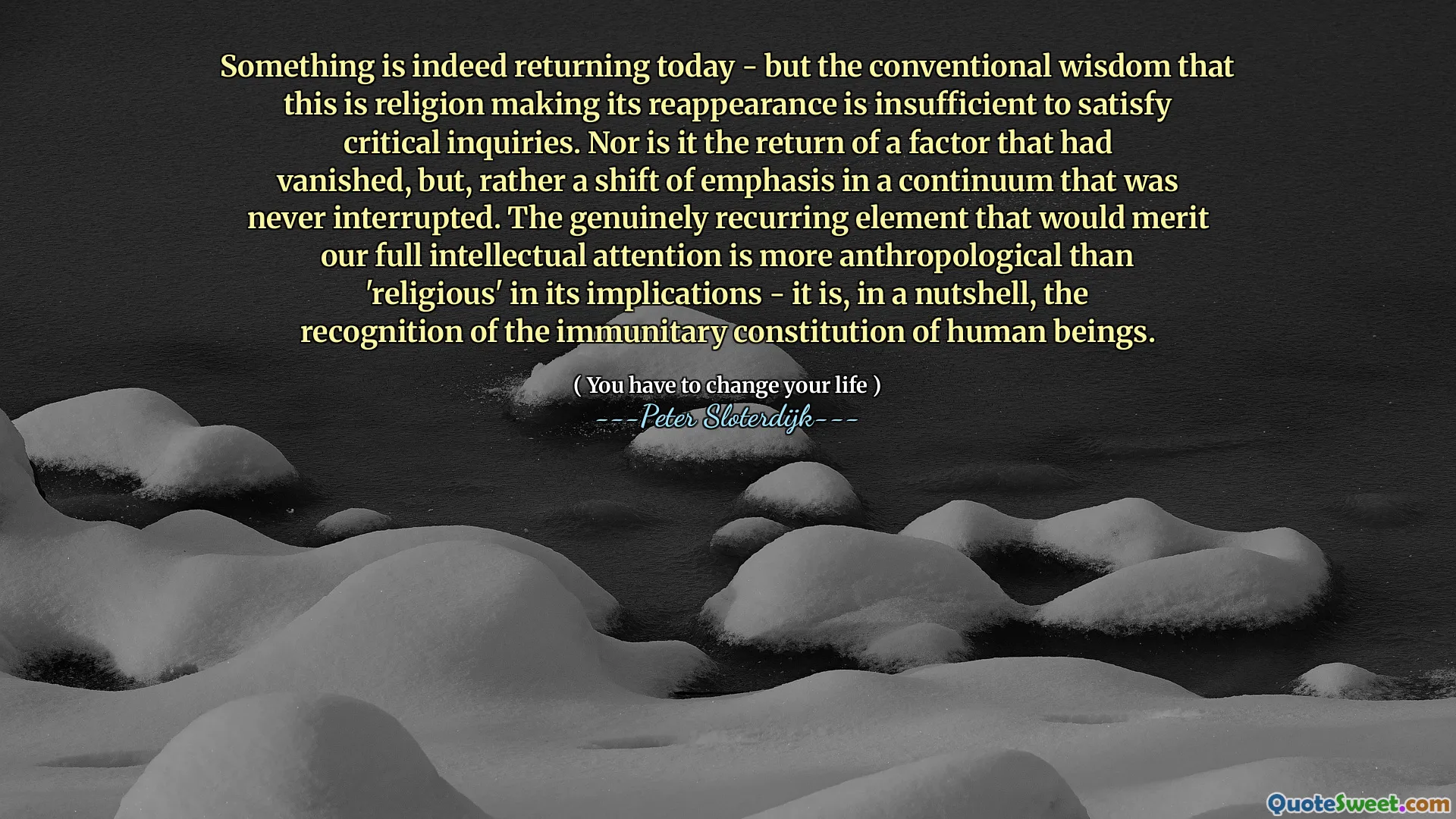
Something is indeed returning today - but the conventional wisdom that this is religion making its reappearance is insufficient to satisfy critical inquiries. Nor is it the return of a factor that had vanished, but, rather a shift of emphasis in a continuum that was never interrupted. The genuinely recurring element that would merit our full intellectual attention is more anthropological than 'religious' in its implications - it is, in a nutshell, the recognition of the immunitary constitution of human beings.
This quote invites us to reconsider the nature of what appears to be a resurgence of religion and similar social phenomena in contemporary times. Instead of viewing it as a mere revival of faith or traditional spiritual practices, the author suggests that what we are witnessing is better understood through an anthropological lens—acknowledging the inherent immunitary, or immune, systems embedded within human existence. These systems—both biological and social—function as protective mechanisms, shaping behaviors, beliefs, and social patterns that are fundamental to human life.
The idea that such mechanisms are in a state of continual shift, rather than complete disappearance and reappearance, forces a rethinking of the way we interpret cultural and religious phenomena. It implies that what we see as religious resurgence could actually be an expression of deeper, universal human strategies aimed at preserving integrity in a complex, interconnected world. These immunitary functions manifest not just in individual health but also in collective social structures, ideologies, and even in our defenses against change or turmoil.
Recognizing the immunitary nature of human reactions gives us a more nuanced understanding of social dynamics. It underscores the importance of viewing human history and social change as part of an ongoing process rooted in fundamental needs for protection and stability. This perspective invites a broader inquiry into human nature itself and encourages us to explore how these intrinsic immunitary tendencies influence our evolution, identity, and interaction with the world around us.







